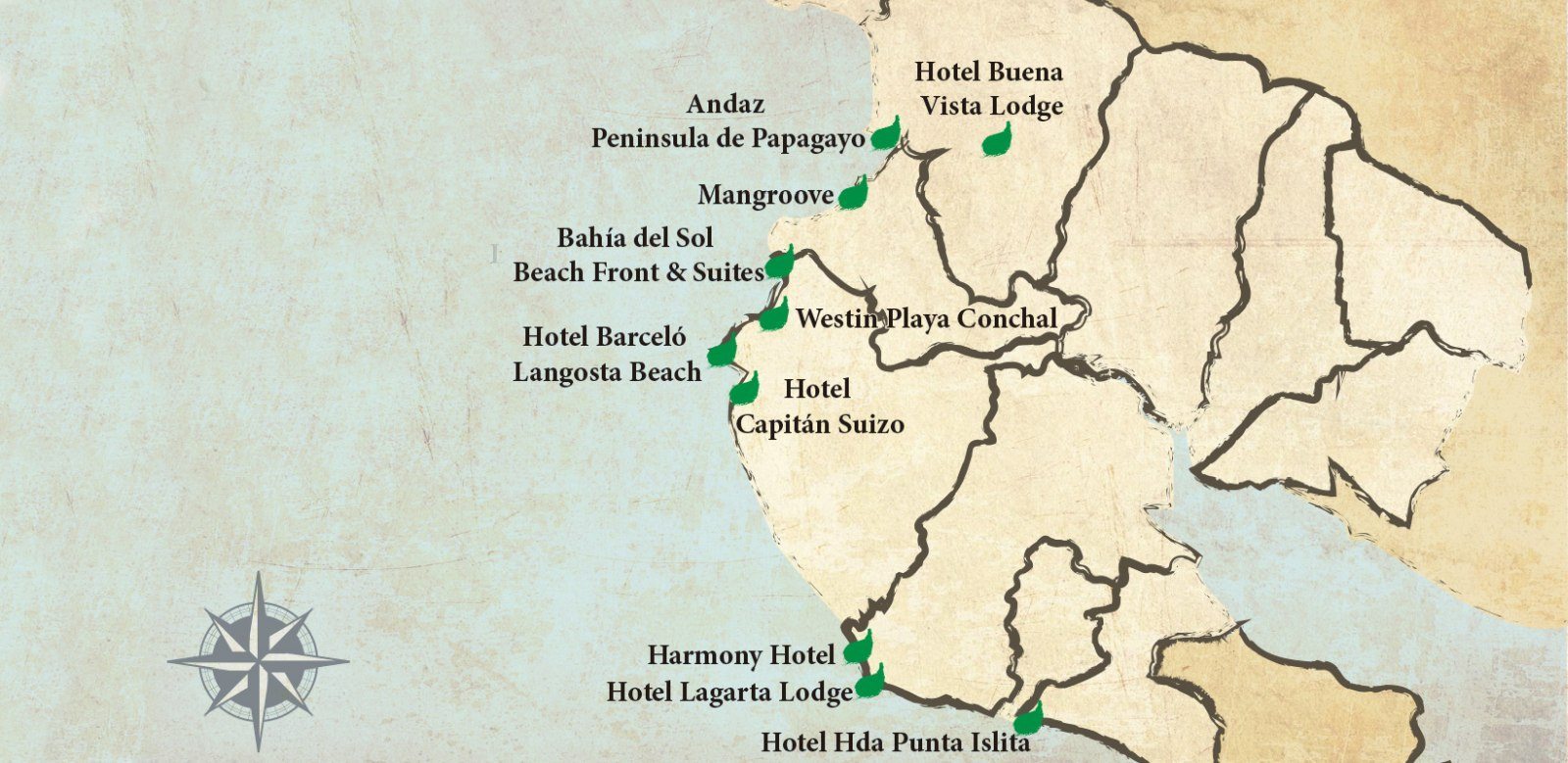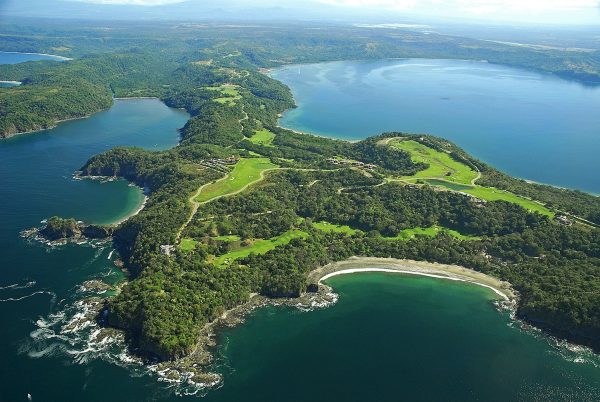
Did you know that there not only are five-star hotels, but also five-leave ones? Since the end of the 1990s, the Costa Rican Tourism Board (in Spanish, ICT) has certified hotels that stand out in their efforts to reduce their environmental impact.
However, since 2014 a group of hoteliers has suggested to the ICT that the current Certification for Sustainable Tourism (CST) program is bureaucratic, lacks digital processes, and does not adapt to the capabilities and sizes of different hotels (a small hotel, for example, has a lesser environmental impact than part of an international chain).
Companies like Cayuga Collection (administered by Hotel Harmony in Nosara), Punta Islita (Guanacaste), Villa Blanca (San Ramón), Si Como No (Manuel Antonio), Finca Rosa Blanca (Heredia) and Pacuare Lodge met in 2014 to create a new proposal for the CST.
“We were the business owners that had acquired five leaves (the highest level) since very early on. What we did was propose to the ICT that we had to bring ourselves up to date. We need to make a version 2.0 of the CST,” said Hans Pfister, president of Cayuga.
Although the hoteliers’ proposal was not fully accepted, the ICT did embrace much of the initiative and will launch a new version of the certification in June. The new program will have the name proposed by the business owners and will go into effect in 2018.
Unequal Certification
The CST was “very cutting edge” when it was created, remembered Pfister.
However, getting certified requires a level of capital that small-scale hotels don’t have, according to Pfister. In order to achieve five leaves, businesses have to make large investments in waste-management plants and chemical analysis of water, among other things. It is much easier for a chain hotel to make this investment.
In fact, in Guanacaste only hotels with the ability to make large investments have received five leaves, according to a list provided by the ICT. The CST 2.0 will differentiate between small- and medium-sized businesses and large companies, according to Virgilio Espinoza, leader of the ICT’s certifications department. Espinoza explained that they are thinking about a basic standard and other categories depending on the size of the company. The document is not ready yet.
Another point the hoteliers criticize regarding the certification is that it the process is very bureaucratic. Augustín Alfaro, a sustainability consultant who works for Hotel Punta Islita, stated that there are many processes that cannot be done online.
Alfaro, who has undertaken this process for several companies, also considers that many criteria vary depending on the evaluator, suggesting that there is no standardization.
Because of that, Espinoza assured that the CST 2.0 will be completely digital. He added that although the certification is done by the consortium Planet for People, hired by the ICT, there have been meetings with different groups of hoteliers and several chambers of commerce throughout the country in order to include their recommendations.
CST? What is That?
The Certification for Sustainable Tourism (CST) is a program run by the ICT that categorizes businesses and hotels according to their work towards reducing their environmental impact. Businesses may apply if they wish, and there is no cost to participate. The ICT assigns a score according to the following rubric. Later, the ICT determines the number of leaves.
- Business policies and plans for caring for the environment.
- Systems to manage solid wastes and use of technologies to reduce water consumption.
- How they encourage clients to develop more sustainable habits.
- Hotel interaction with the surrounding communities.






Comments